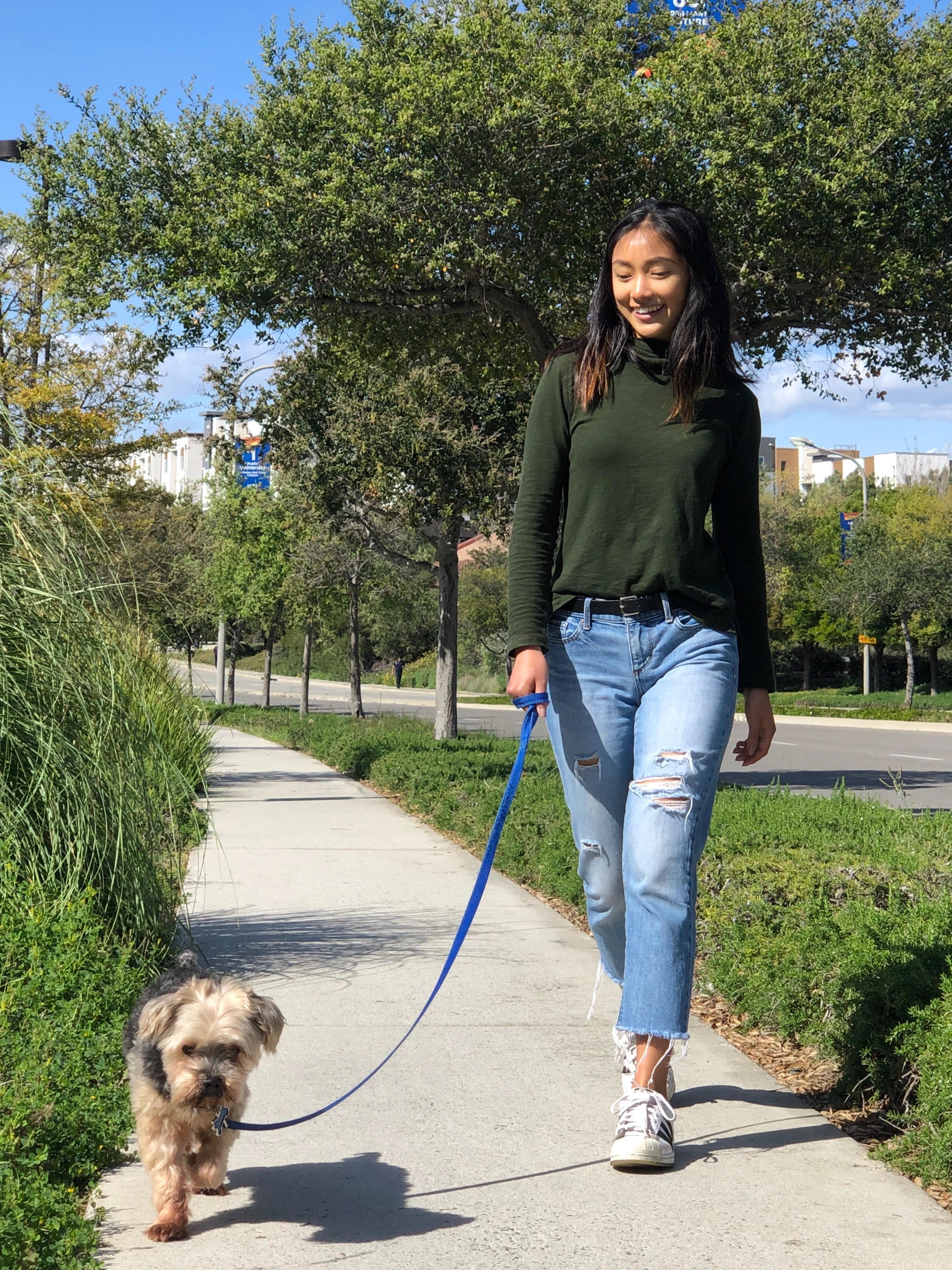UCI Health Affairs town hall provides the latest on COVID-19
Campus leaders host virtual event to share information on the omicron variant and what to expect this winter

In UCI’s fourth town hall of 2021, Health Affairs took the spotlight Thursday to share the latest in the COVID-19 story. The focus was on the omicron variant, vaccines, public health changes and the campus response. Moderated by Dr. Steven Goldstein, UCI vice chancellor for health affairs, the Zoom event featured Dr. Susan Huang, director of epidemiology and infection prevention at UCI Health; David Souleles, director of UCI’s COVID-19 response team; Bernadette Boden-Albala, director and founding dean of UCI’s Program in Public Health; Ramona Agrela, UCI vice chancellor and chief human resources executive; and Michael Dennin, dean of UCI’s Division of Undergraduate Education and vice provost for teaching and learning. About 653 registrants watched as the panelists addressed 48 submitted questions.
“The pandemic is asking more of us than anyone expected,” said Goldstein in his opening remarks, noting that it was a year ago, Dec. 16, 2020, that UCI began administering the COVID-19 vaccine.
Omicron
Huang opened the town hall with updates on the omicron variant, sharing that case counts are increasing, largely due to the variant being three times more transmissible than the more dominant delta variant.
Those who have been vaccinated and had a booster – as well as those who have had a prior COVID-19 infection – are susceptible to the omicron variant, Huang noted. However, while it’s still being studied, it appears to cause less severe illness than does the delta variant.
It’s expected that the omicron variant will swiftly overtake the delta variant and that most individuals who are infected by the omicron variant will experience mild symptoms similar to those of a cold or the flu. However, Huang said, “we will see hospitalizations and deaths, especially in those who are unvaccinated.”
She noted that “while two doses of the vaccine may not protect against infection from omicron, vaccination does show that infected persons are much less likely to be hospitalized.”
The World Health Organization named omicron a variant of concern on Nov. 26 because of its ability to spread. “It is highly, highly contagious and rapidly outcompeting delta,” Huang said. “It is most assuredly in Orange County; we just haven’t found it yet.”
Who can get omicron? Everyone, she said. The unvaccinated are at the greatest risk, and prior COVID-19 infection does not offer protection. “The bottom line is that everyone can get it and everyone can spread it,” Huang said. “The good news is that booster shots are showing to have a good effect.”
In a slide, she noted that only 17 percent of eligible Americans have received a booster vaccination. “The winter surge is here, and it has real teeth – whether it’s delta or omicron,” Huang said. “Everyone who is eligible should get boosted. It’s the best line of defense against omicron.”
She added: “We have a long way to go, and there are a lot of gatherings coming up. Indoor masking is really important.” California has just instituted a new statewide indoor masking requirement, effective through Jan. 15.
As for a new vaccine, Huang said she expects that one will come, “but that does not obviate the need to get boosted right now. Hopefully, someday we’ll have a universal vaccine, but it’s likely to be next summer or fall when we see the next round of a better vaccine.”
Travel and gatherings
Boden-Albala shared information about the new travel guidance that those returning to or visiting California must get tested for COVID-19 within three to five days of arrival.
“We’re in a transitional period and can’t go back to normal yet,” she said. “Plans for holiday travel during a pandemic are not completely free of risk. Check your destination’s protocols for testing and vaccination. Practice social distancing, and wear a mask. COVID doesn’t discriminate between Hawaii and your hometown.”
Boden-Albala also stressed the importance of adhering to guidelines from the Centers for Disease Control and Prevention.
“Always follow the most vigilant practices,” she said. “If you’re traveling to a place that doesn’t require a mask, be vigilant and wear a mask. When you’re at a family gathering and have a choice, choose outdoors.”
At-home rapid tests are available and can be administered at the door before letting family and friends in. Leaving doors open and having people go in and out during gatherings was also suggested to reduce risk.
“Don’t go to a place with a lot of crowds, like for New Year’s Eve,” Boden-Albala advised. “We have one more year of this. Stick with close friends this year.”
Other suggestions included getting tested before and after large gatherings and staying home if you’re not feeling well.
Campus vigilance
Souleles opened with a message of thanks to the entire UCI community, lauding students and employees for being flexible and resilient.
“You’ve been following the guidelines, and it has made a difference,” he said, noting that UCI had 426 cases of COVID-19 in fall 2020, compared with 326 this fall.
The reduction is attributed not only to adhering to safety protocols but also to high vaccination rates – 98 percent for students and 96 percent for employees.
“As we move into returning for winter quarter and the specter of omicron and how it will play out in O.C. and at UCI, now is the time to get vaccinated,” Souleles said.
Upload your booster
Booster shots are available for those who are six months past their initial two-dose series of vaccinations or two months past the one-dose Johnson & Johnson vaccination. Both students and employees can begin uploading their booster records – students at the UCI Student Health Center patient portal and employees at the Occupational Health upload portal.
“Look for information soon on incentives for those who upload their boosters by Jan. 4, if you’re eligible to be boosted,” Souleles said.
He reminded viewers of the many layers of protection UCI has in place: the daily symptom check, staying home if sick, COVID-19 testing, the University of California vaccination policy, following state and local guidance, contact tracing, a robust isolation and quarantine program, and masking.
“We can expect the indoor masking requirement to remain in place for winter quarter,” Souleles noted.
All these measures are supported by policies detailed on the UCI Forward site at www.uci.edu/coronavirus.
More information was provided during the question-and-answer portion of the town hall on such subjects as winter quarter on campus, vaccines for children under 5, going to places like Disneyland or Knott’s Berry Farm, foreign travel and which booster to get.
A video replay of the town hall is available, as is a transcript, and questions will continue to be answered through the “Ask the Expert” feature of the daily UCI Digest campus email.


